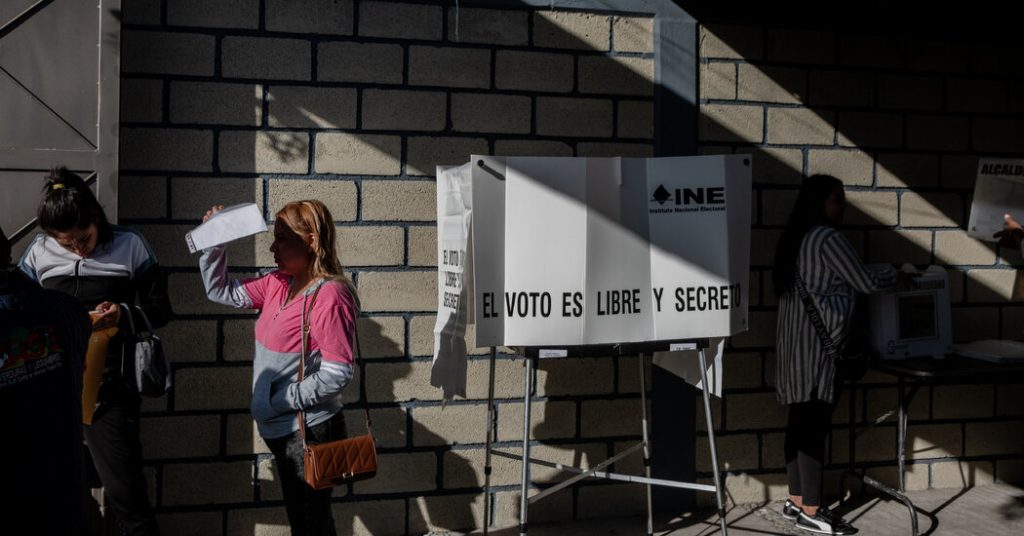Mexico is gearing up for a historic election in which the two main contenders are women, Claudia Sheinbaum and Xóchitl Gálvez. Sheinbaum, a climate scientist representing the governing party, has held a double-digit lead in the polls for months, while Gálvez, a businesswoman, has positioned herself as an alternative to the current administration. The race highlights the progress made by women in Mexican politics and the influence of the powerful current president, Andrés Manuel López Obrador, who has upended establishment politics and played a central role in defining political identities in the country.
The election on Sunday will determine who succeeds López Obrador, who has been praised for lifting millions of people out of poverty but also criticized for weakening democratic institutions and failing to address ongoing issues of cartel violence and public debt. The candidates have differing approaches to these challenges, with Sheinbaum advocating for continued focus on social causes of violence and Gálvez arguing for a stronger stance against organized crime. The next president will also have to navigate the impact of the U.S. presidential election, with potential threats to Mexican interests under a continued Trump presidency.
The Mexican economy faces both opportunities and challenges, with the country benefitting from increased trade with the United States but also grappling with a ballooning federal deficit and debt-ridden national oil company. The next president will have to address these issues while also reassessing the role of the armed forces, which have been granted expanded responsibilities under the current administration. In addition, the outcome of the U.S. presidential election could have significant implications for Mexico, particularly in relation to immigration and trade policies.
Both candidates have expressed willingness to work with either President Biden or a potential return of Donald Trump to the White House. Sheinbaum has emphasized the importance of maintaining good relations with the U.S. while continuing efforts to manage migrant flows. Gálvez, on the other hand, has positioned herself as experienced in dealing with challenging leaders like Trump and is confident that Mexico can work towards resolving key issues at the border and with regards to fentanyl production. Ultimately, the election on Sunday will determine the future direction of Mexican politics and its relationship with the United States.


